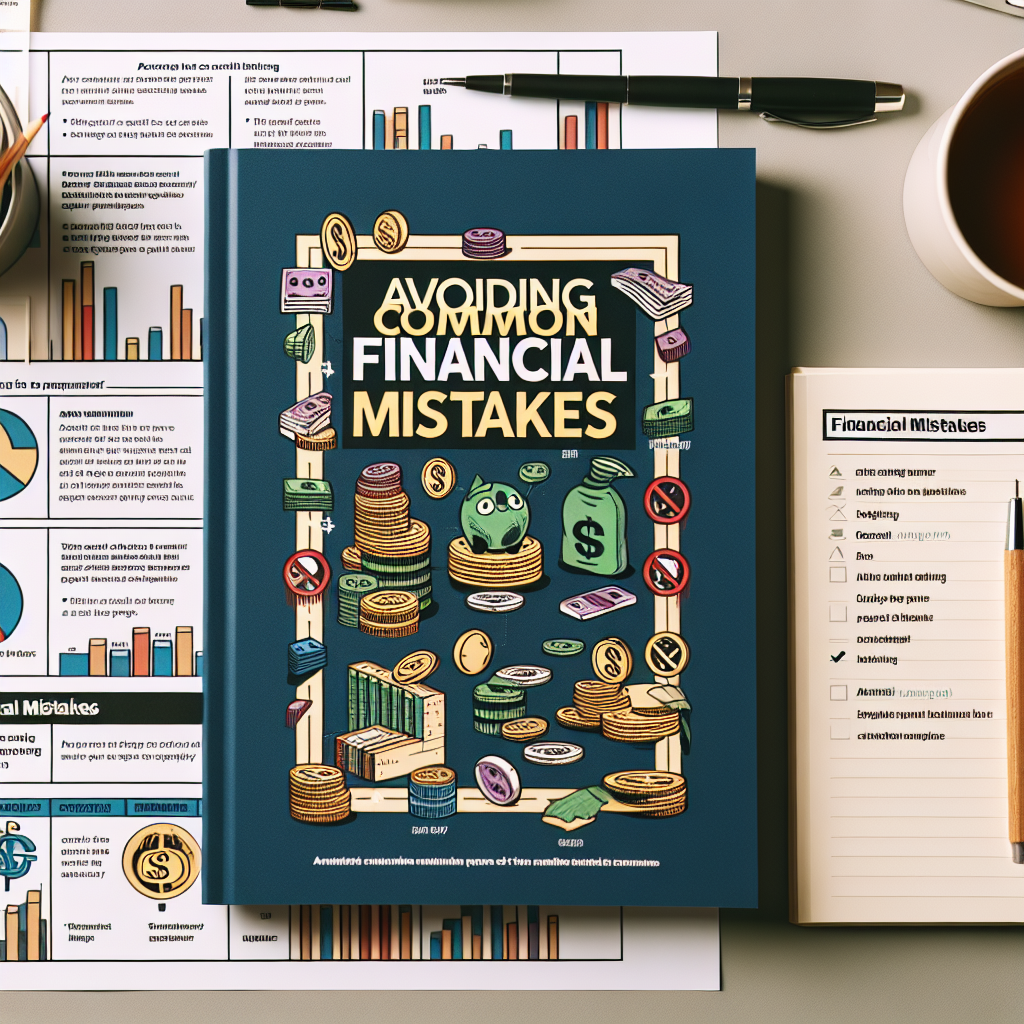
Managing personal finances is crucial for long-term financial security, yet many people make costly mistakes that can drain their savings and hinder wealth accumulation. Small financial errors may seem insignificant at first, but over time, they can result in thousands of dollars lost. Avoiding these common pitfalls can help you build a stronger financial future and secure your long-term financial well-being.
In this article, we will explore five of the most common financial mistakes that people make and how to avoid them.
1. Not Having a Budget
One of the most fundamental mistakes in personal finance is failing to create and stick to a budget. Without a budget, it’s easy to lose track of spending and fall into financial difficulties. Many people underestimate how much they spend on discretionary expenses such as dining out, streaming subscriptions, and impulse purchases.
Why It’s a Problem
- Without a budget, you may spend beyond your means.
- You might not save enough for emergencies or future goals.
- Overspending on non-essential items can prevent wealth accumulation.
How to Fix It
- Track your expenses for a month to identify spending patterns.
- Use the 50/30/20 rule: 50% of your income for necessities, 30% for discretionary spending, and 20% for savings and debt repayment.
- Utilize budgeting apps like Mint, YNAB, or Personal Capital to monitor your finances.
By establishing a solid budget, you can take control of your finances and ensure that your money is being allocated wisely.
2. Not Having an Emergency Fund
Unexpected financial emergencies, such as medical bills, car repairs, or job loss, can put you in serious financial trouble if you don’t have savings set aside. Many financial experts recommend having at least three to six months’ worth of living expenses in an easily accessible account.
Why It’s a Problem
- Without an emergency fund, you may rely on credit cards or loans, leading to debt accumulation.
- High-interest debt from credit cards can make financial recovery difficult.
- Stress and anxiety can increase when facing financial uncertainty.
How to Fix It
- Start by setting aside small amounts each month into a high-yield savings account.
- Prioritize emergency savings before making luxury purchases.
- Consider automating transfers to your emergency fund to build it consistently.
An emergency fund provides financial security and helps prevent unnecessary debt in times of crisis.

3. Ignoring High-Interest Debt
Debt, especially from credit cards, personal loans, or payday loans, can be a major financial burden if not managed properly. Many people focus on making only the minimum payments, which leads to accumulating thousands of dollars in interest over time.
Why It’s a Problem
- High-interest rates (often 15-30% for credit cards) make it difficult to pay off debt.
- The longer you carry a balance, the more you pay in interest.
- High debt levels can hurt your credit score, affecting your ability to get a mortgage or other loans.
How to Fix It
- Use the avalanche method: Pay off the highest-interest debt first while making minimum payments on others.
- Alternatively, use the snowball method: Pay off the smallest debts first to build momentum.
- Consider transferring balances to a low-interest or 0% APR credit card if possible.
Eliminating high-interest debt frees up more money for saving and investing in your future.
4. Not Investing Early Enough
Many people delay investing because they think they need a large amount of money to get started. However, time in the market is more important than timing the market. Compound interest allows investments to grow exponentially over time, meaning the earlier you start, the more you benefit.
Why It’s a Problem
- Missing out on years of compound interest results in lower long-term returns.
- Inflation erodes the value of savings that are not invested.
- Relying solely on a savings account will not build wealth effectively.
How to Fix It
- Start investing with small amounts through index funds, ETFs, or retirement accounts like a 401(k) or IRA.
- Take advantage of employer-sponsored retirement plans, especially if they offer matching contributions.
- Diversify investments to manage risk effectively.
Investing early ensures greater financial stability and a more comfortable retirement.
5. Failing to Plan for Retirement
Many individuals do not prioritize retirement planning until it’s too late, which can leave them financially vulnerable in their later years. Relying solely on Social Security or pension funds may not be sufficient to maintain the desired standard of living after retirement.
Why It’s a Problem
- Many people underestimate how much they will need in retirement.
- Inflation increases the cost of living, making it essential to save more.
- Retiring without adequate savings may require working longer than expected.
How to Fix It
- Use retirement calculators to estimate how much you need to save based on your desired lifestyle.
- Maximize contributions to tax-advantaged accounts like 401(k)s, IRAs, and Roth IRAs.
- Consult a financial advisor to develop a long-term retirement strategy.
Proper retirement planning allows for financial independence and peace of mind in later years.
Conclusion
Avoiding these five common financial mistakes can save you thousands of dollars and significantly improve your financial future. By creating a budget, building an emergency fund, managing debt, investing early, and planning for retirement, you can take control of your financial destiny.
Financial success is not about making perfect choices all the time but about making consistent and informed decisions that lead to stability and growth. Start today, and your future self will thank you!




